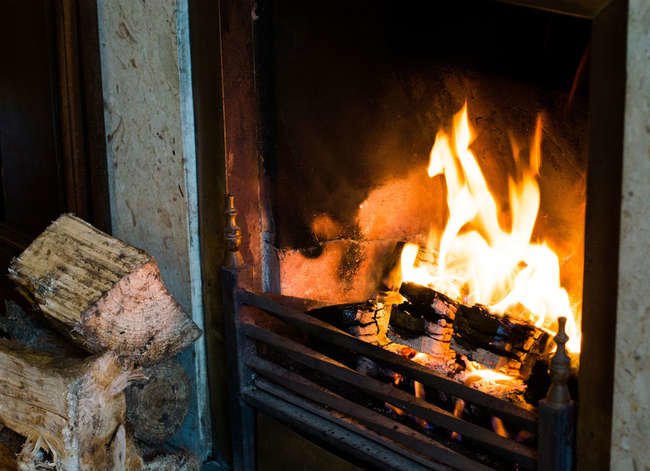We may earn revenue from the products available on this page and participate in affiliate programs. Learn More ›
Park Facing the Sun
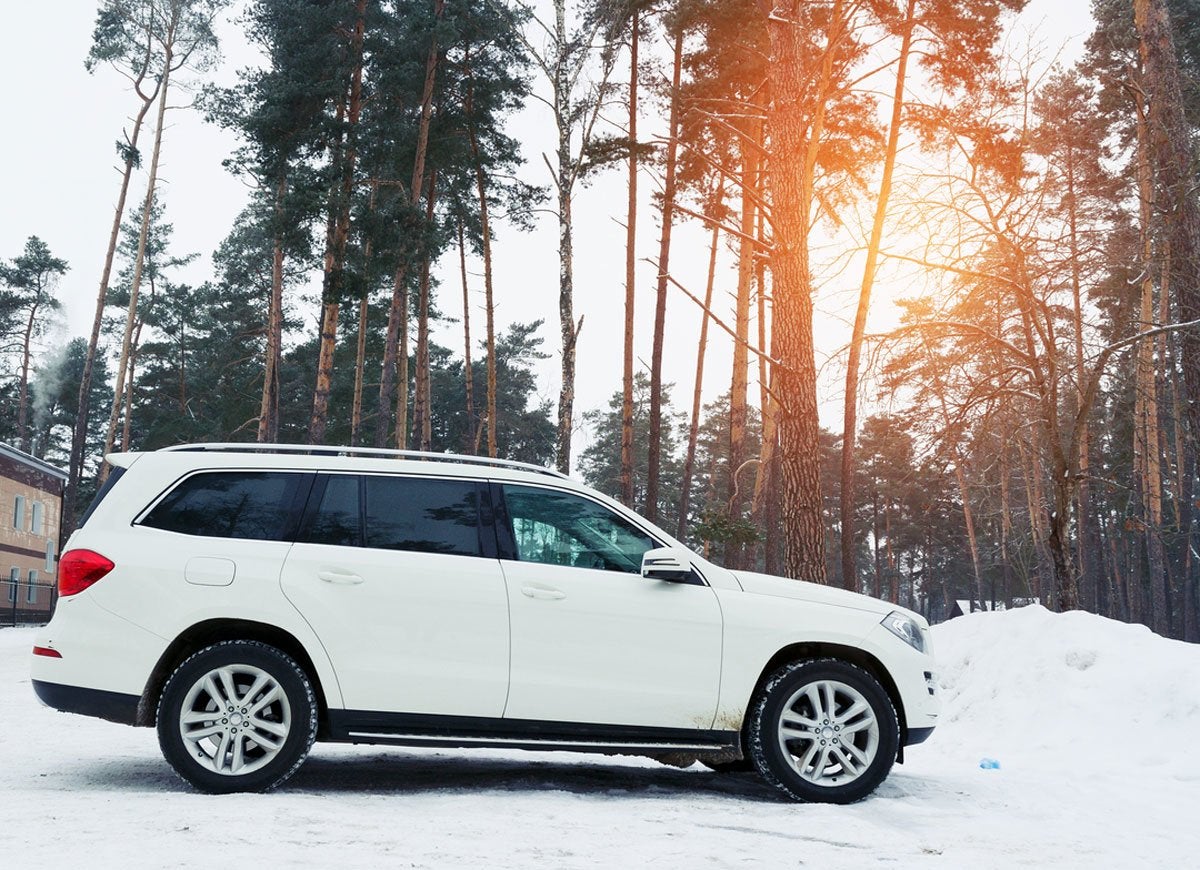
You can harness the passive solar power of the sun and reduce icy windshield scraping simply by parking your car so the sun hits the windshield. Even in frigid temps, the morning rays of the sun can melt away light frost if you park your car facing east the night before. During the day, choose a parking space with southern exposure to take advantage of the winter sun’s warming rays.
Related: 16 Winter Emergency Supplies You Should Always Keep in Your Car
Reverse Ceiling Fan Blades
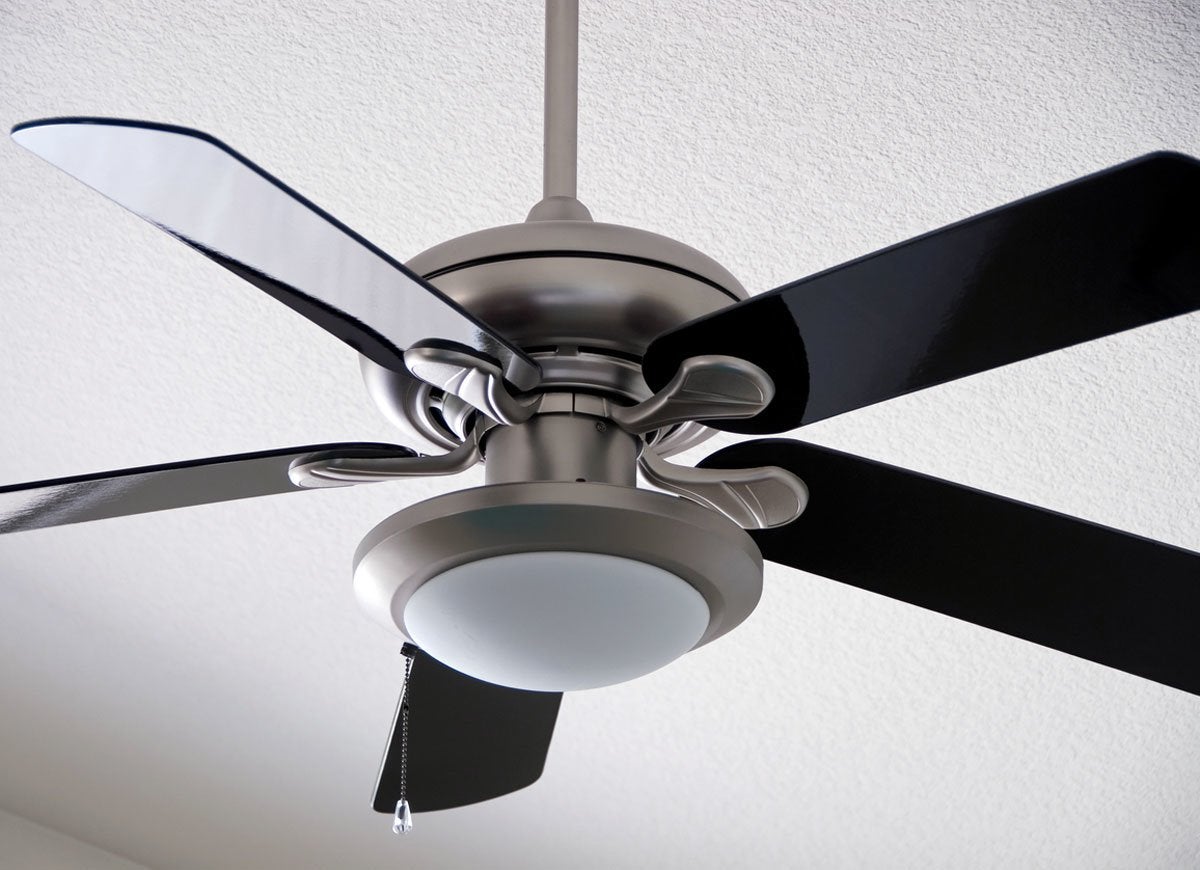
You may not know that most ceiling fans have a switch that changes the direction of the blades’ rotation. In the summer, set the blades to rotate counterclockwise to create a cooling draft. In winter, flip the switch so the blades will rotate clockwise, pulling cold air up and circulating warm air out to the walls and down toward the floor—which is just where you want it!
Stay Hydrated

People who don’t drink the recommended eight glasses of water a day could feel the cold more acutely than those who drink sufficient fluids. Turns out, your body will be better able to deal with the cold if it’s well hydrated. Keep a bottle of water handy to sip on throughout the day, and enjoy hot herbal tea, cider, and clear broths to ensure that you get enough liquids. Limit coffee, unless it’s decaf, to a couple of cups per day since caffeine is dehydrating.
Close Your Fireplace Flue
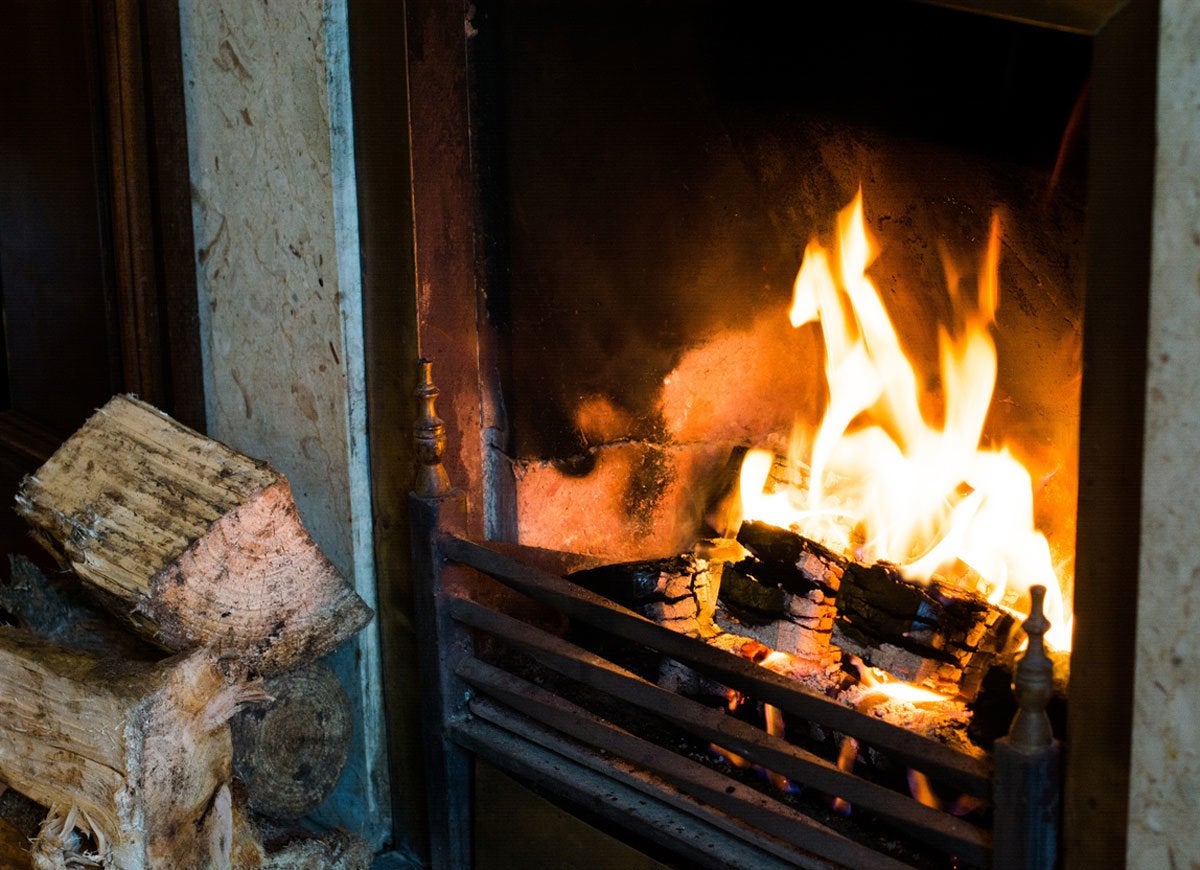
A roaring wood fire will heat up a room, but when the fire goes out, warm indoor air will drift up and out of an open flue. Make it a practice to close the flue manually if your fireplace doesn’t have an automatic damper. Your rooms will stay warmer, and you’ll save on heating bills.
Stock Your Car for the Cold
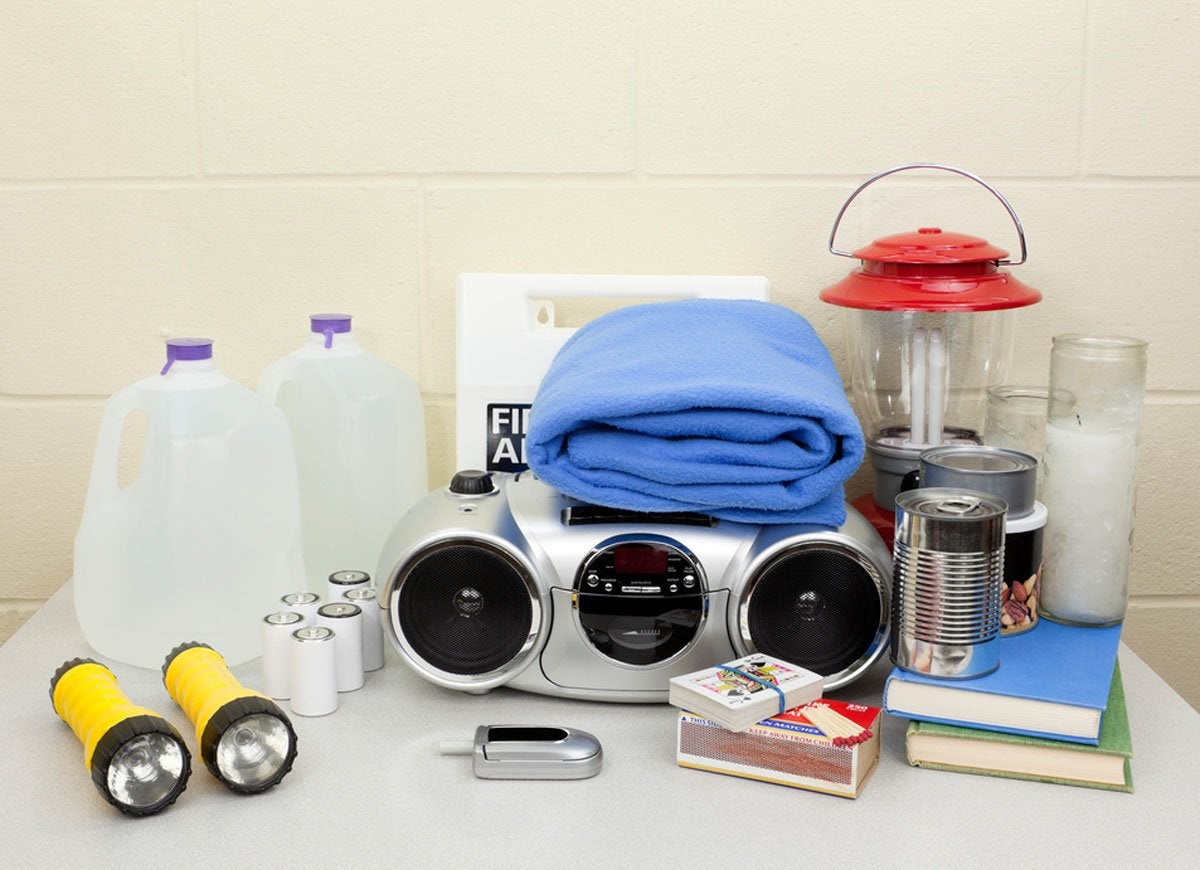
No one wants to get stuck in a snowstorm or stranded on the side of the road at any time of year, but it’s especially miserable during winter. Put together a cold-weather kit and keep it in your car. Then, if the unthinkable happens, you’ll be prepared. Stock your kit with extra blankets, dry clothes, hats and mittens, bottled water, calorie-dense snacks, a flashlight, and plenty of air-activated heat packs.
Related: 16 Winter Emergency Supplies You Should Always Keep in Your Car
Nix the Booze

We’re all familiar with those depictions of brave Saint Bernards bearing little kegs of brandy to revive travelers stranded in the snow. Unfortunately, booze-toting canines are just a myth. And it’s just as well: Even though alcohol might feel warm going down, it will drop your core body temperature, putting you at increased risk of hypothermia if you’re already cold. Alcohol also increases perspiration, which creates a layer of moisture next to your skin that further lowers your body temperature.
Switch to Heavy Curtains
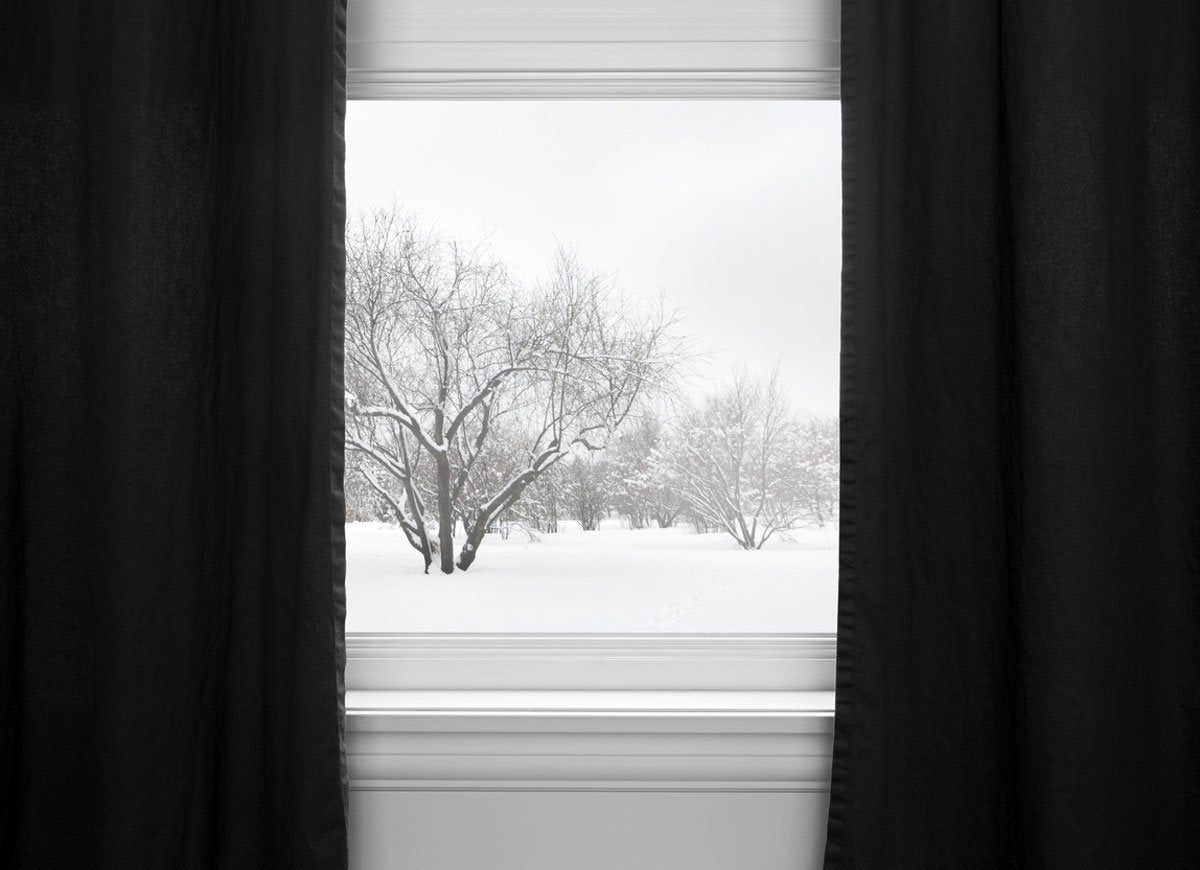
When the cold weather strikes, take down your thin or sheer curtains and pack them away until summer. In winter, heavy drapes are the way to go. Opt for flannel or fleece to add a layer of insulation between you and the cold glass.
Open Curtains
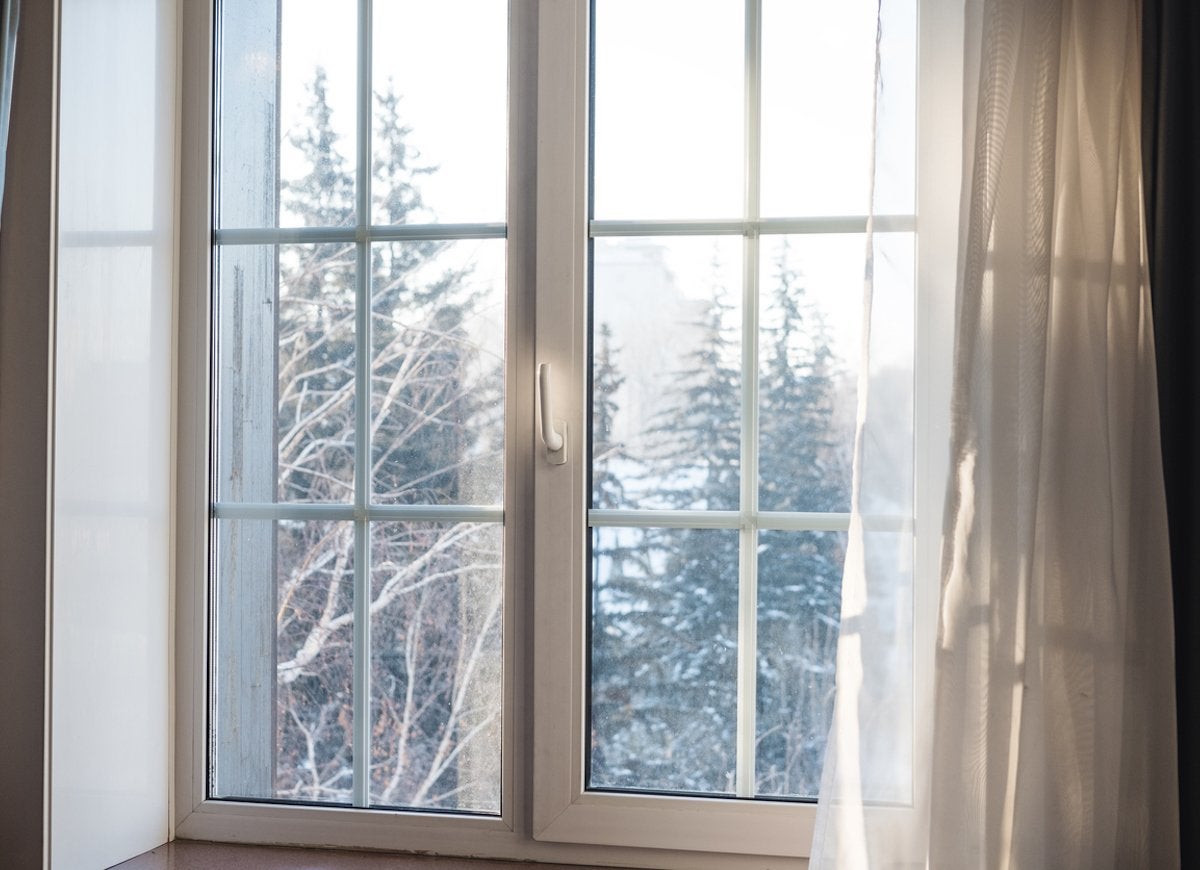
Do however make sure you pull the drapes aside on sunny days. It’s a quick, easy, and affordable way to warm up a room.
Layer Bedclothes to Maximize Warmth

The order in which you put blankets on your bed can affect how warm you’ll feel when you’re tucked under the covers. Lightweight, fluffy blankets should go right over the sheets, but use a dense, thick blanket on top. Dense blankets provide a more effective insulating thermal surface barrier, helping to keep the warmth in and the cold out.
Related: 16 Simple Tricks to Stay Seriously Warm This Winter
Use Your Dryer to Heat Clothing
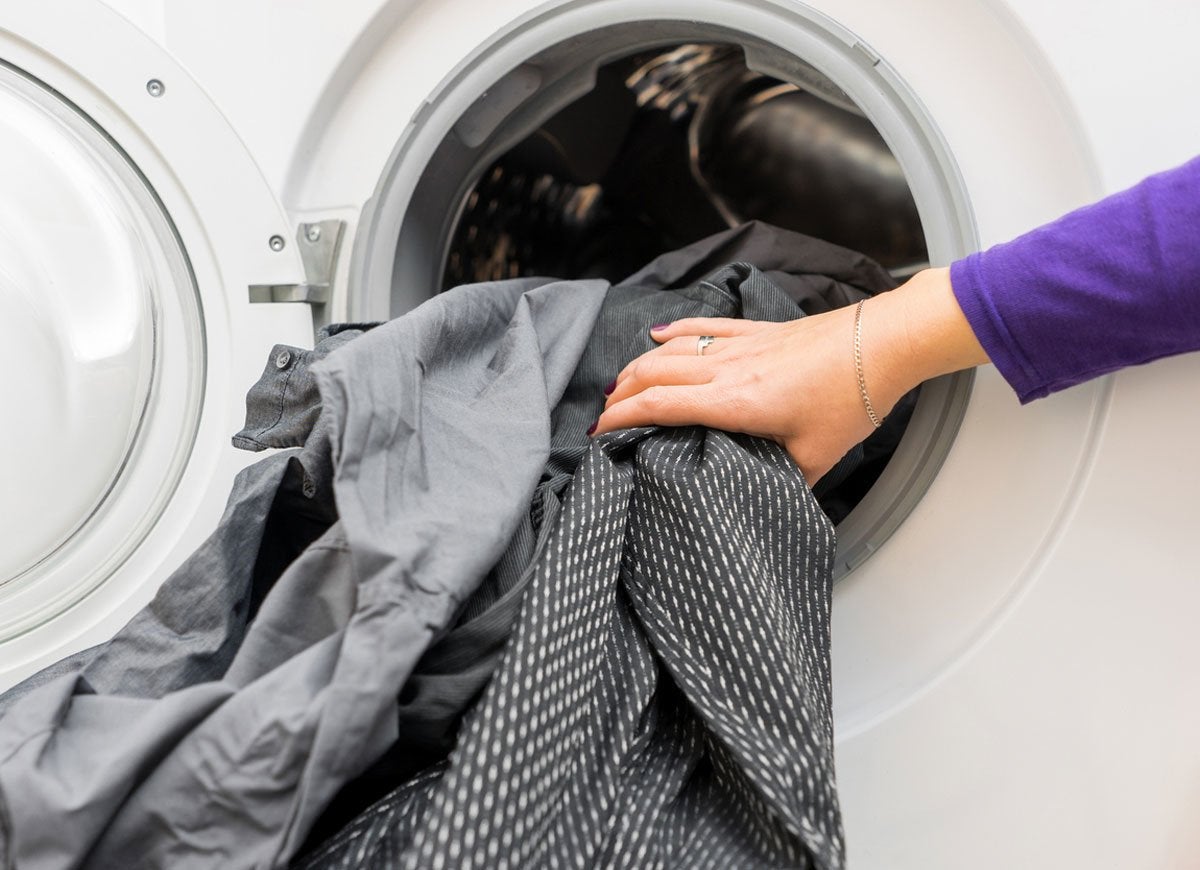
Putting your pajamas in the dryer for five minutes before you get ready for bed will make them toasty warm when you put them on. This is also a good way to warm up mittens, hats, socks, and scarves before you bundle up to go outside.
Stop Window Chill with Bubble Wrap
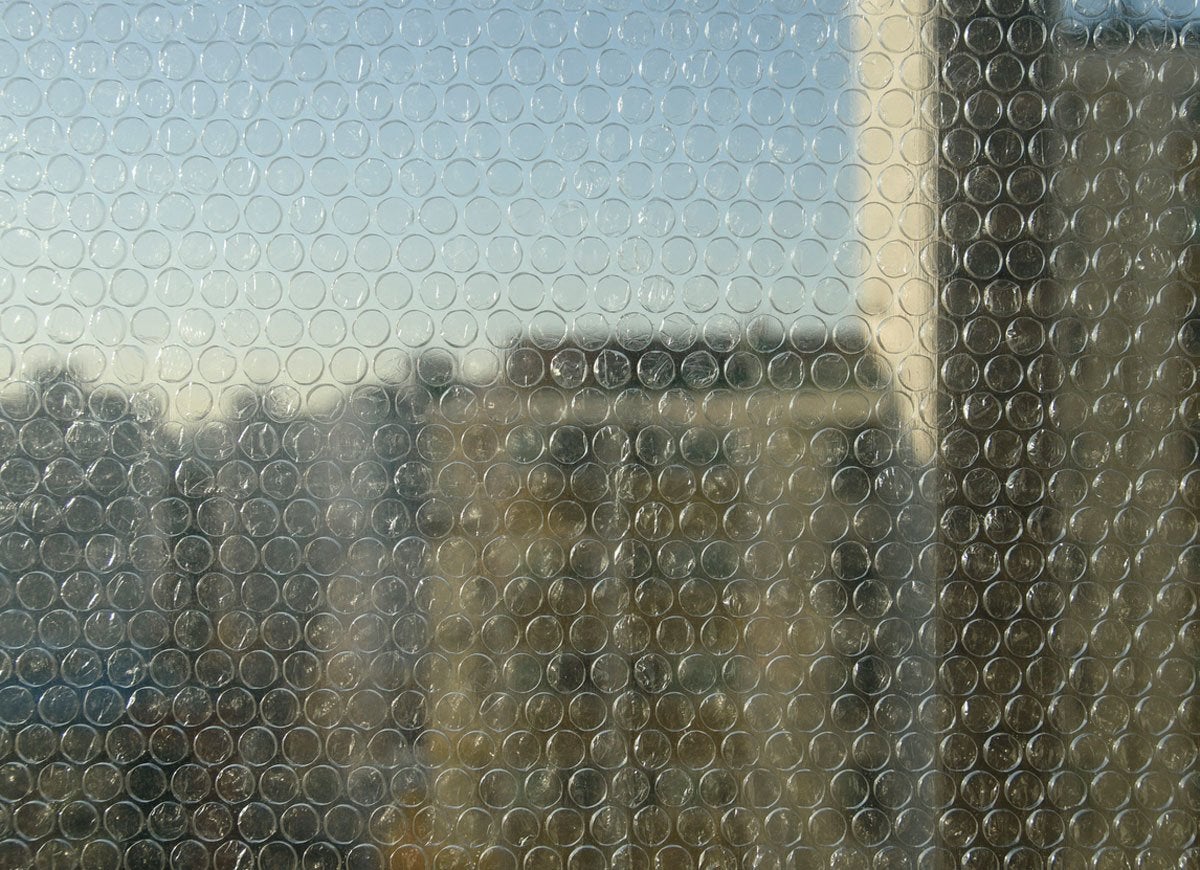
Old and inefficient windows can get bitterly cold in winter, especially windows that face north. Although now is not a great time to replace those drafty windows, you can temporarily block out the cold with a length of bubble wrap. Cut a section of bubble wrap to fit the window glass, or piece together smaller sections to cover the window, then spritz the bubble wrap lightly with water to stick it to the window. The air-filled bubbles will insulate your windows, keeping your space warmer.
Related: 9 Extraordinary Uses for Bubble Wrap
Make Rice Bag Warmers
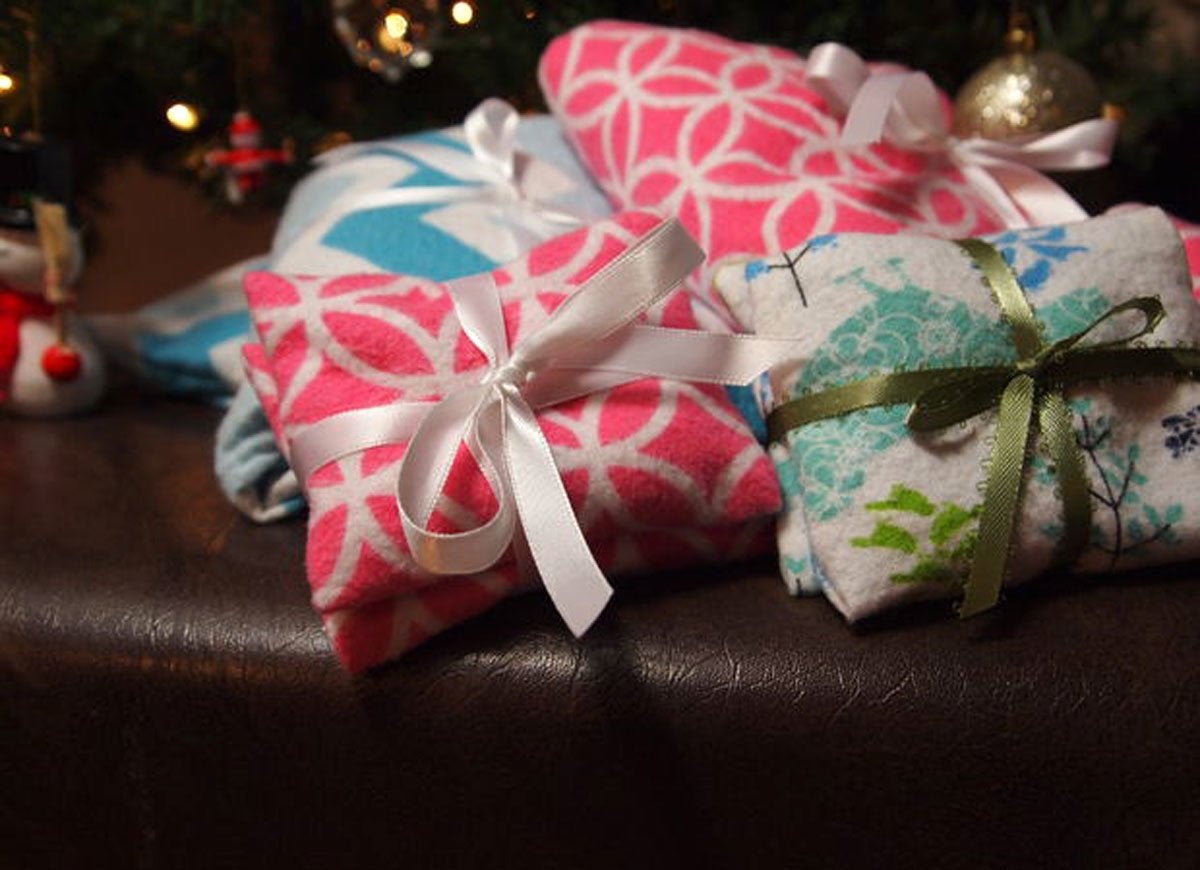
Instructables via HollyMann
Because rice retains and radiates heat for up to an hour, it is an effective and affordable ingredient in homemade heating pads. Make your own by sewing two 8″ x 10″ pieces of flannel together on three sides. Fill the bag with four cups of dry white rice, and then sew it shut. When you need extra heat, place the rice bag in the microwave for one to two minutes, then tuck it between your sheets or on top of your shoulders or slippers while you’re watching TV.
Block the Drafts
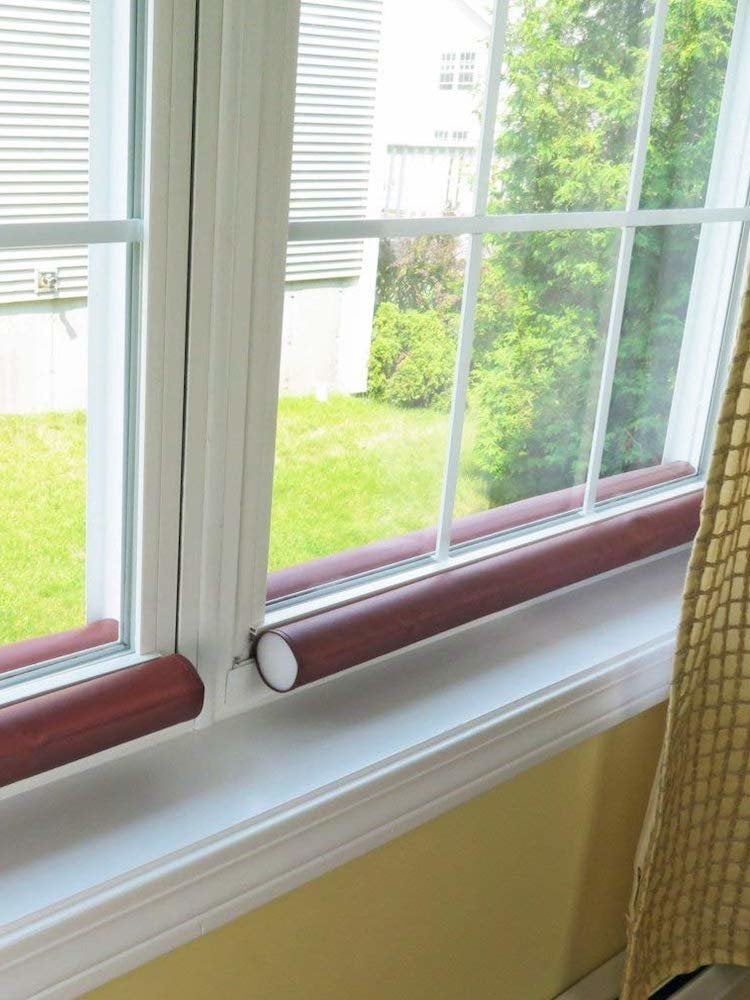
Even the slightest draft from a door or window can add a chill to the room. You can block the draft by making your own stopper—using towels or pool noodles—or you can buy one like this affordable Double Door Window Draft Stopper from Amazon.
Related: Draft Dodgers: 8 DIY Creations to Keep Out the Cold
Make Your Own Hand Warmers
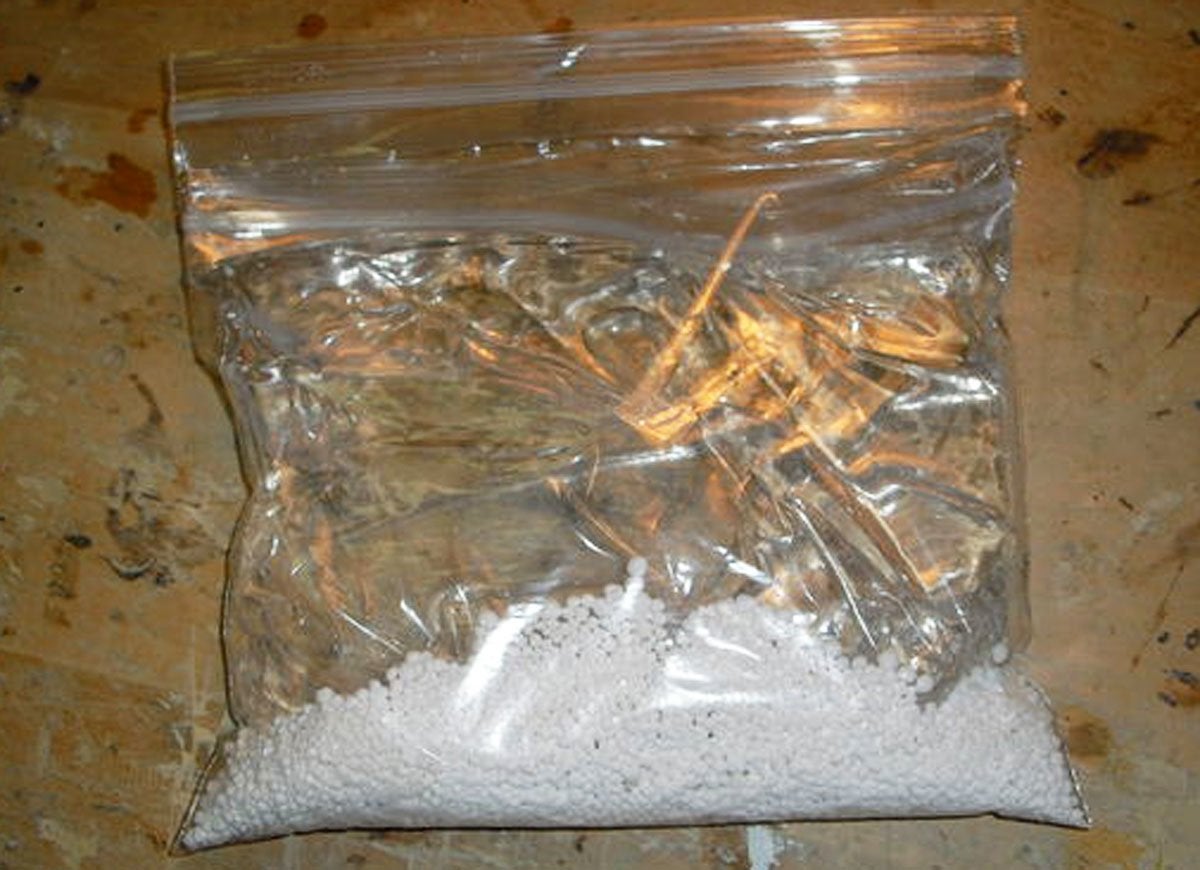
If you need something toasty to tuck in your coat pockets, make your own hand warmers. All you need are ziplock bags, water, and ice-melt pellets (calcium carbonate). Fill a snack-size bag with one-half cup of ice-melt pellets and add one-half cup of water. Seal tightly, then place the ziplock into another bag for additional spill prevention. The chemical reaction of the calcium carbonate and water will produce heat for up to two hours.
Add Another Layer
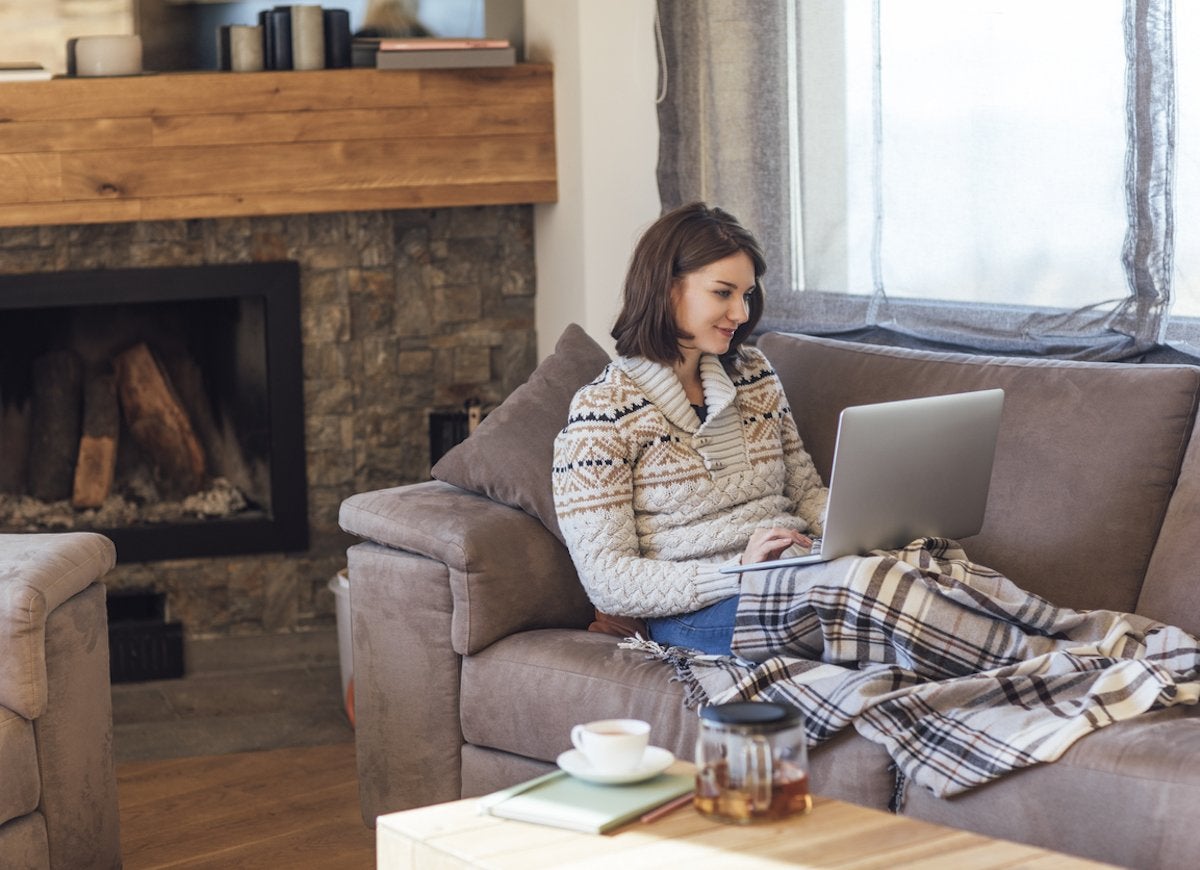
Before you go cranking up the thermostat, consider what you’re wearing. Throw on a sweatshirt, put on cozy socks, add an undershirt, or wrap yourself in a blanket to add much warmth without adding dollars to your monthly energy bill.
Bake Some Treats
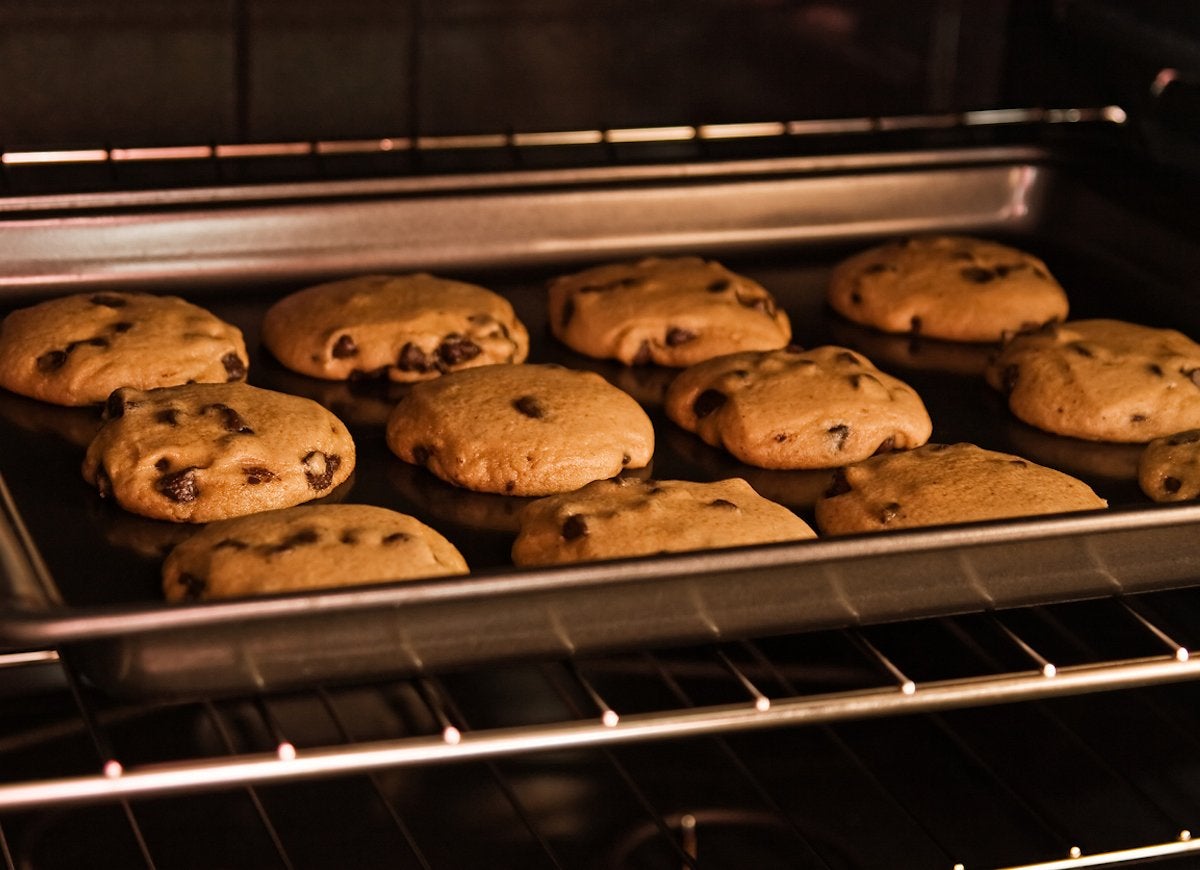
Indulge in a treat under the guise that you’re cold. Using the oven will heat up the kitchen and result in warm goodies at the end.

DIY Flooring Solutions That Look Practically Professional
In search of flooring that meets the needs of the space without sacrificing style? We found solutions for 5 tricky space updates that blend aesthetics, durability, and DIY-friendly design.

